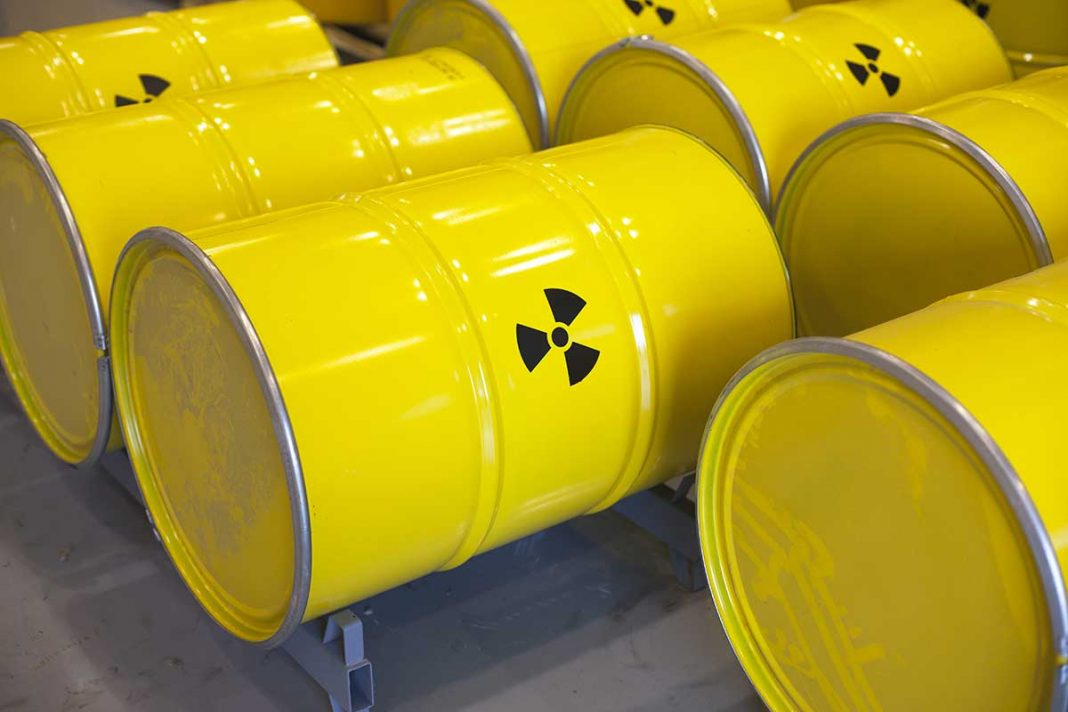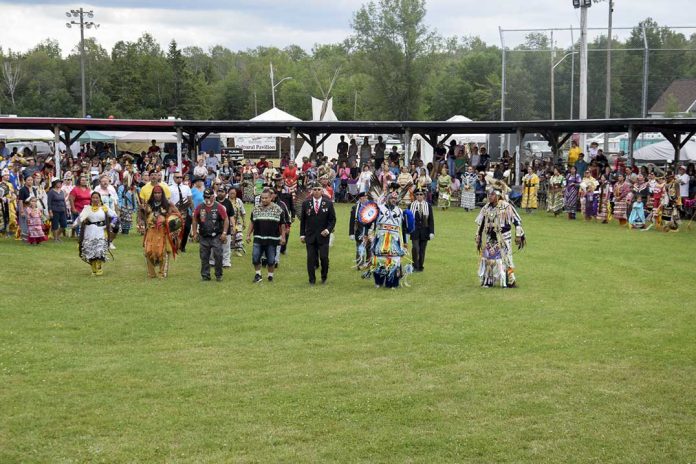OTTAWA – More than 100 civil society organizations and prominent scientific experts from across Canada have called on the federal minister of Natural Resources (the Honourable Seamus O’Regan) to suspend all decision-making involving radioactive waste disposal until Canada has a sufficient radioactive waste policy in place.
“Adequate disposal of nuclear waste in Canada is a train wreck,” stated Mike Wilton of Dominion Bay, in indicating that he is among a number of groups calling for a radioactive waste policy.
“As yet, there is no acceptable long-term functioning low-yield nuclear waste storage facility anywhere in the world—let alone medium- and high-yield waste,” added Mr. Wilton, who represents the (former) environmental group Algonquin Eco Watch.
In February 2020, it was reported by the International Atomic Energy Agency that Canada’s radioactive waste management policy framework “does not encompass all the needed policy elements nor a detailed strategy” necessary to provide for a national strategy for long-term radioactive waste management in Canada. In the letter, signatories request that the development of Canada’s radioactive waste policy and associated strategy must be based on “meaningful consultation with the public and Indigenous peoples and strong public engagement from the outset.”
Signatories underscored the urgency of their request as Canada’s nuclear regulator, the Canadian Nuclear Safety Commission (CNSC), presses ahead with regulatory licence decisions on a number of radioactive waste projects. Fearing Canada’s deficient radioactive waste framework will imprint itself on decisions affecting the health and safety of future generations and the environment, signees urged Canada to provide leadership and establish sufficient guidance and federal policy.
Other commitments requested by signees included that Canada establish objectives and principles to underlie a nuclear waste policy and strategy. They also requested Canada identify the problems and issues posed by existing and accumulating radioactive waste.
In their letter the groups write to Minister O’Regan, “we write to you today to express our strong support for the development of comprehensive policies and strategies for the long-term management of radioactive waste in Canada that will protect the environment and current and future generations of Canadians. We urge that these policies and strategies be developed transparently and that they be based on meaningful consultation with the public and Indigenous peoples. The undersigned groups wish to be considered stakeholders in any consultations your department undertakes during the policy development process.”
“Furthermore, we urge you to instruct the (CNSC) to cease its development of radioactive waste management and nuclear decommissioning regulatory documents until the necessary overarching policies and strategies are in place. We also urge you to instruct the CNSC to pause consideration of any current or active applications involving radioactive waste disposition and decommissioning, and pause its acceptance of new radioactive waste proposals,” the letter reads.
“We write to request that you advise the undersigned organizations and individuals as to the plans for development of an enhanced radioactive waste policy and associated strategy, specifically in terms of consultations, engagement and timing. We also request that these policy and strategy development plans be made public,” the letter continues.
“We request the following in the federal government’s approach to developing a radioactive waste policy for Canada, along with the supporting strategy: A commitment to meaningful consultation with Indigenous peoples and strong public engagement from the outset, and a commitment that development of a current and effective radioactive waste policy will be carried forward by the federal government itself, not delegated to the CNSC or the Nuclear Waste Management Organization, and designed in such a way that public input is as important in determining the ultimate policy decisions as the view of the nuclear industry; a commitment to a public process of identifying the problems and issues that are posed by Canada’s existing and accumulating radioactive waste—this process must include substantive consultation with Indigenous peoples and engagement of the public; a commitment to a public process of establishing the objectives and principles that should underlie Canada’s nuclear waste policy and strategy; a commitment to a public process of establishing criteria for evaluation, and for evaluating proposed approaches that may be embodied in a national radioactive waste policy and strategy; a commitment to a public process of examining the implementation issues and requirements to follow a national radioactive waste policy and strategy, including an examination of the agencies that may be needed for implementation and their needed roles (and noting that these may not be any of the agencies that currently exist and have distinct responsibilities; a commitment that the resulting policy and strategy will be predicated on the need for long-term public credibility, transparency and capacity for effective implementation,” the groups’ letter reads.
“As expressed above, it is urgent that the federal government direct the CNSC to pause in its acceptance of active and new radioactive waste proposals and in the CNSC’s policy development via the CNSC regulatory documents, all of which is currently proceeding in the absence of needed federal policy and direction,” the group explained. “We are committed to engaging in this policy development process, and contributing from our own knowledge, experience and expertise to the discussions of these matters, which are important to Canadians now and into the far future.”
The letter was forwarded went to Minister O’Regan late last week.





